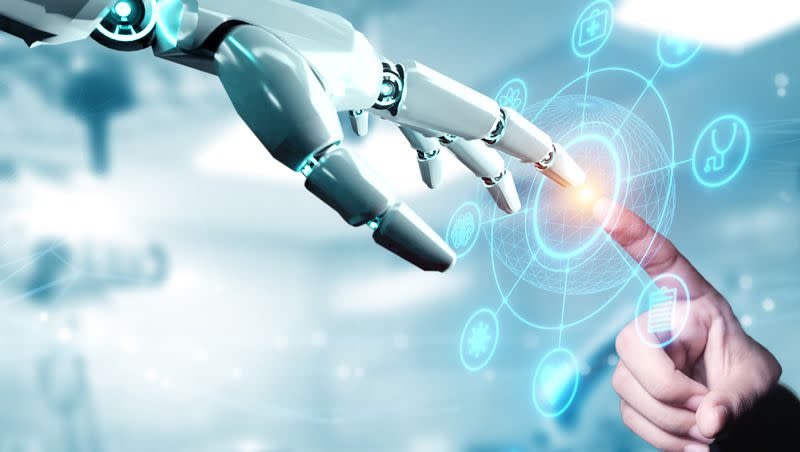Opinion: Will AI take care of us in old age?

If, like me, you are approaching an age when joints creak and legs move slower, I have a simple question for you.
Would you rather have a human help you with old-age tasks, when you need it someday? Or would you be comfortable with artificial intelligence handling all the necessary tasks?
I’m guessing you might say it depends. For instance, I wouldn’t mind having a self-driving car take me to doctor appointments and drop me off at the front door. A robot might be OK for some of the more mundane or, shall we say, delicate things that accompany the not-so-golden part of the golden years. It might not be bad to have one around if I should fall or need medical attention.
But it would be foolish to diminish the value of human interaction. Researchers have linked persistent loneliness in old age to things like stroke, heart disease and dementia. A report in Psychology Today links the lack of human touching to “anxiety, depression, and immune system disorders.”
Why do I ask these questions? Because the current drop in the fertility rate makes it possible there may not be enough human caretakers around to help you when you get to that point. If your spouse is no longer around, or children are not near, a robot might become your best friend.
An editorial in The Economist last June mulled this over and concluded everything will be OK. Just as technological advances have kept the world from the widespread famines that have been predicted since the 18th century, AI will save the day now, too.
Related
This, after the editorial made a convincing argument that a declining world population — now an eventual certainty unless global fertility rates stage a dramatic turnaround — will lead to everything from government budget crises to a precipitous drop in innovation.
Young people have “fluid intelligence,” which helps them solve problems in creative and new ways, complementing the knowledge and wisdom of the less-fluid older folks.
But who needs young people if you have AI? “Fewer babies means less human genius. But that might be a problem human genius can fix,” the editorial said.
I thought about this the other day when The Washington Post published a report examining why people of the millennial generation are choosing not to have children. The answers, it turns out, are complicated.
For instance, a Gallup poll found almost no adult in the United States thinks having zero or one child is ideal. Instead, 73% said either two or three children is ideal. And yet, more young women are choosing to have none.
The Post said economic factors play a huge part in this.
“Hammered by the Great Recession, soaring student debt, precarious gig employment, skyrocketing home prices and the COVID-19 crisis, millennials probably faced more economic headwinds in their childbearing years than any other generation,” the report, written by columnist Andrew Van Dam, said.
That and the lack of quality male prospects, as Anna Louie Sussman wrote recently in The New York Times, can make simply telling people to get married ineffective.
The same can probably be said about tax breaks or other government incentives urging people to marry and have children. Public campaigns from Denmark to Singapore have shown little success. Russia has made Sept. 12 a national “day of conception” holiday, giving awards to couples who give birth in June.
Still, Russia’s fertility rate in 2020 remained below replacement levels at 1.5 children per woman of childbearing age.
All of which is to say, solving this riddle won’t be easy. What’s far less uncertain is that a declining population will not be good. We can already see it unfolding in Japan and Italy, where the baby bust has been happening for a while.
In a separate report last May, The Economist reported, “Earlier this year, Kishida Fumio, Japan’s prime minister, warned that the country is ‘on the brink of being unable to maintain social functions’ because of its baby bust.”
The Economist said the number of countries and territories with fertility rates below replacement levels was 124 in 2021. It is expected to hit 136 by 2030.
Yes, AI might find ways to keep societies functioning under difficult conditions, if it doesn’t kill us all first. We might even have robots who can touch us with skin-like fingers and hands. But something tells me that won’t come close to being the same as real human companionship.

